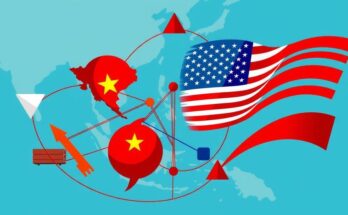As Iraq prepares for the 2025 parliamentary elections, political factions are divided over electoral reforms. Issues of financial influence and electoral fraud persist, with allegations of vote-buying and manipulation threatening the integrity of the electoral process. Despite attempts at reform by the Independent High Electoral Commission, concerns about external pressures continue to complicate the electoral landscape, underscoring the need for substantive changes to ensure democratic integrity.
As Iraq gears up for its parliamentary elections in 2025, political factions are in disagreement over proposed electoral reforms. The fragmentation within Parliament threatens the implementation of stricter regulations meant to safeguard electoral integrity, amid rising fears about the vulnerability of the electoral system to political manipulation.
The electoral landscape in Iraq has been rife with controversy, as the Independent High Electoral Commission (IHEC) upholds the integrity of elections amidst frequent allegations from opposition groups and international observers regarding vote manipulation and fraud. Concerns over vote-buying and undue political influence continue to plague the legitimacy of electoral outcomes.
Financial resources wield considerable influence in Iraq’s elections, with various parties reportedly spending large amounts of money to influence voter decisions. Reports indicate an alarming prevalence of vote-buying, particularly targeting economically disadvantaged regions, with candidates allegedly offering between $50 to $500 per vote. Additionally, incentives like food packages and household appliances were employed to entice voters.
During the 2021 elections, an estimated $250 million was expended on vote-buying schemes, wherein voters were allegedly offered substantial sums for their voter cards used in fraudulent ballots. Amidst increasing allegations of manipulated outcomes, controversies surfaced, particularly as the electoral results changed dramatically compared to previous elections.
The results of the contentious 2021 elections led to significant dissent, especially from the Al-Fatah Alliance, which faced a severe decline in seats. Hadi al-Amiri, leader of Al-Fatah, declared, “We will not accept these fabricated results, whatever the cost.” This sentiment was echoed by Asaib Ahl al-Haq leader Qais al-Khazali, who characterized the elections as “the worst in Iraq’s modern history.”
Political factions have also exploited state mechanisms for electoral advantage, including the biased use of state-owned media and the allocation of governmental resources in exchange for votes. Numerous temporary employment contracts were issued by the Ministry of Electricity shortly before the elections, raising concerns that these were used as tools for garnering political support.
Local land allocations have also been misused, with thousands of land grants distributed to politically connected individuals before elections. Political analyst Aqil al-Fatlawi warns, “Without reforms, elections could produce unfair results that fail to reflect the will of the people,” indicating potential imbalances in the electoral process due to financial and political dominance.
Concerns over safety during elections remain high, particularly in conflict-prone areas where armed groups have been reported to intimidate opposition candidates. Documented threats and attacks have led to a climate of fear that discourages independent candidates from contesting, emphasizing the detrimental impact of political coercion on democratic processes.
The IHEC has initiated several reforms aimed at enhancing electoral integrity, including biometric registration to mitigate fraudulent practices. Currently, over 80% of voters have registered biometrically, which IHEC asserts helps close loopholes exploited by political actors. Nevertheless, observers caution that biometric systems alone do not eliminate external pressures affecting voter choices.
Electoral reforms continue to be debated, with proposals for new voting systems aimed at reducing the advantages held by wealthier candidates. However, certain voices argue that merely altering the mechanism will not suffice without strict enforcement measures. Moreover, calls for redrawing electoral districts aim to stimulate localized electoral competition.
Despite these discussions, there have been no substantial amendments to Iraq’s electoral laws, primarily due to ongoing disputes within political circles. Observers stress the necessity for meaningful reforms to restore public trust in elections, as the current structure remains vulnerable to corruption and manipulation.
Iraq’s struggle against electoral fraud encompasses a range of challenges, including financial influence, coercive practices, and the call for reforms. As the 2025 parliamentary elections approach, significant obstacles persist regarding proposed reforms and the effectiveness of existing measures. Experts emphasize the need for equitable electoral practices to ensure that elections reflect the true will of the Iraqi populace. Without tangible reforms and a commitment to accountability among political actors, the future of Iraq’s electoral integrity remains in jeopardy.
Original Source: shafaq.com




